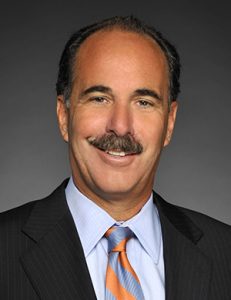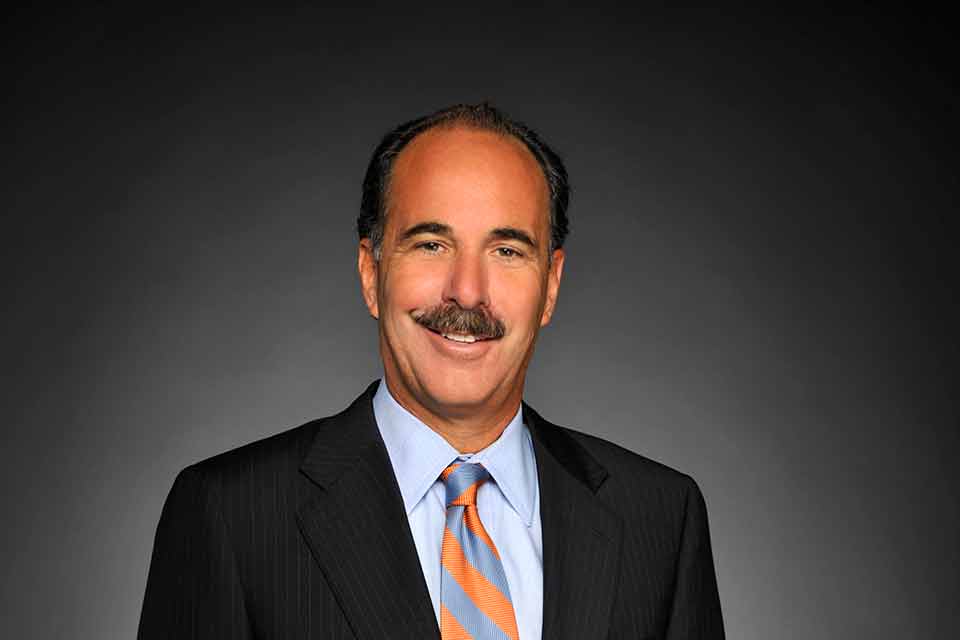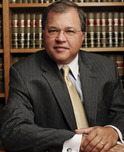Law Update
Attorney Marc L. Breakstone: Assessing bias in voir dire after ‘Williams’
Attorney Marc L. Breakstone recently authored an article which appears in the May 2019 edition of MATA Journal. The journal is published by the Massachusetts Academy of Trial Attorneys.
Assessing bias in voir dire after ‘Williams’
By Marc L. Breakstone

Attorney Marc L. Breakstone
The recent Supreme Judicial Court decision in Commonwealth v. Williams, 481 Mass. 443 (2019), generated quite a buzz on the MATA Listserv. Members questioned the significance of the decision, which analyzes how a potential juror should be screened for impartiality.
The opinion suggests that, regardless of the biased opinions or beliefs expressed by a potential juror during voir dire, the juror could be deemed impartial as long as the juror pledges to either set aside or disregard their opinion, to commit to deciding the case on the evidence and to follow the court’s instructions.
Williams meticulously analyzes how trial judges should determine impartiality when a prospective juror expresses potentially interfering bias during jury selection. The majority begins with the acknowledgment that “[o]ur jurisprudence regarding how to assess beliefs or opinions expressed by prospective jurors during voir dire has been less than clear.” The opinion then promises to “set forth factors that a judge should consider when a prospective juror discloses a belief or opinion based on his or her world view.” Clarity on these important subjects is what every trial lawyer seeks.
Unfortunately, Williams raises more questions than it answers. The defendant in Williams was charged with possession with intent to distribute a class B substance. During jury selection, a prospective juror raised her hand in response to a question whether there was “anything about the subject matter or your views about the subject matter that would affect your ability to be fair and impartial in deciding the case?”
During judge-conducted voir dire, the juror stated a belief that the criminal justice system is rigged against young African American males. When asked by the judge if she could put aside that opinion and bias, the juror stated she did not think she could put it aside.
Continue reading this article in the MATA Journal. The article begins on page 2.
Attorney Marc L. Breakstone
Attorney Marc L. Breakstone has practiced law in Boston for more than 30 years and focuses on the representation of plaintiffs in personal injury and medical malpractice cases. He has long advocated for expanded attorney participation in voir dire in Massachusetts.
About Breakstone, White & Gluck
The Boston personal injury lawyers at Breakstone, White & Gluck have over 100 years combined experience representing clients who have been injured by the negligence and wrongdoing of others in Massachusetts. If you have been injured or have lost a loved one, it is critical to learn your rights. For a free legal consultation, contact our attorneys at 800-379-1244 or 617-723-7676 or use our contact form.
Massachusetts Superior Court Judge Questions Long-Standing “Transitory Water” Doctrine
 For decades, the Massachusetts courts have adhered to the “transitory water doctrine.” Simply put, under this common law standard, Massachusetts property owners have generally been shielded from liability in slip and fall cases when an injury results from normal use in wet weather. For example, a customer who wears boots in the snow and tracks water into a store, causing another customer to slip.
For decades, the Massachusetts courts have adhered to the “transitory water doctrine.” Simply put, under this common law standard, Massachusetts property owners have generally been shielded from liability in slip and fall cases when an injury results from normal use in wet weather. For example, a customer who wears boots in the snow and tracks water into a store, causing another customer to slip.
Established more than 40 years ago, the transitory water doctrine has set the legal standard for property owners. With no incentive to avoid liability, large commercial property owners were virtually free from worries about injuries caused by water tracked in from outside. Make no mistake: many people have been badly hurt right after crossing the threshold of a store, where the water and grime are most concentrated.
But this may change, after a recent ruling by Superior Court Judge Cornelius J. Moriarty II.
Judge Moriarty recently ruled in Holden v. Wal-Mart Stores East, LLP. In February 2016, the plaintiff alleged she stepped into the Wal-Mart in Hanover and slipped on water that had accumulated on the floor. The spot where she slipped was between the door and a mat, which would have prevented the fall, but which was located a few feet from the doorway.
Wal-Mart argued the transitory water doctrine barred the plaintiff’s claim and moved for summary judgment. But Judge Moriarty denied this motion, writing that the transitory water doctrine can no longer be considered good law after the Supreme Judicial Court’s 2010 ruling in Papadopoulos vs. Target Corporation, 457 Mass. 368 (2010).
“Whether Wal-Mart made reasonable efforts to protect the plaintiff against the danger is for the jury to determine,” Moriarty wrote. The judge reasoned that Massachusetts law is moving towards a unified standard or reasonable care for property owners, and that old common law exceptions are being eliminated.
In 2010, the Supreme Judicial Court of Massachusetts abolished the century-old double standard governing who could bring claims for injuries resulting from slips and falls on snow and ice. Now, property owners have a responsibility to use reasonable care in clearing snow and ice.
Prior to Papadopoulos, Massachusetts law distinguished between injuries suffered by falls on “natural” and “unnatural” accumulations of snow and ice. Previously, a property owner was not liable for injuries caused by slip and falls on natural accumulations, so property owners had no legal incentive to clear snow in some cases. But property owners could be held liable if someone was injured by an “unnatural” accumulation, such as snow dropped by a plow or ice from a leaking gutter.
The Holden case is not yet resolved. If the case does result in a verdict against Wal-Mart, then Wal-Mart will have the option of appealing the summary judgment decision.
We believe that this is a sensible decision by Judge Moriarty, and that a uniform standard of reasonable care under all circumstances for property owners will lead to greater safety and fewer personal injuries.
Free Legal Consultation: Breakstone, White & Gluck
With more than 100 years combined experience, Breakstone, White & Gluck specializes in personal injury and medical malpractice cases in Boston and across Massachusetts. For a free legal consultation with our attorneys, contact us at 800-379-1244 or 617-723-7676 or use our contact form.
DiCarlo: SJC tells Workers’ Comp Insurers: You Can’t Get What You Don’t Pay For
In a major victory for the rights of injured workers, the Supreme Judicial Court ruled today that pain and suffering damages, to which injured workers are entitled in their accident cases, are not subject to liens from workers’ compensation insurance companies. As a result of the ruling, workers will be able to keep more of their personal injury settlements and verdicts.
Until today, there was confusion over the relationship between workers’ compensation liens and damages paid by a third party to employees for worksite injuries. If an employee gets injured, he or she is entitled to workers’ compensation for lost wages, medical bills, and other specific damages. But workers’ compensation insurance does not pay for pain and suffering damages.
If the worker collects workers’ comp, then successfully sues a third party (not his employer) for those injuries, he or she has a duty to reimburse the insurance carrier up to a point. The mechanism to regulate reimbursement to the insurance company is General Laws c. 152, § 15. The statute provides that an employer can recover its workers’ compensation payments to its employee, if that employee recovers money from a third party.
But, as mentioned above, workers’ compensation pays for lost wages and medical expenses. In a tort lawsuit, an injured party is entitled to more than that, including damages for pain and suffering. In the case where an employee simply recovers lost wages and medical expenses from a third party, there is no dispute that that money is returned to the workers’ compensation insurer in the amount that was paid. Any excess, the employee keeps. But, what about when an employee also gets money for pain and suffering? Does the workers’ compensation insurer get that money back, too?
Today, the SJC said, in no uncertain terms, no. They didn’t quite say “you can’t always get what you want.” But, they did say, you get can’t what you don’t pay for. Workers’ compensation does not pay for pain and suffering. So, if an employee gets a recovery that specifically sets aside damages for pain and suffering, that employee keeps that set-aside amount. Anything else is liable to go back to the workers’ compensation insurer for the amount that was paid (minus its fair proportionate share of attorney’s fees and expenses).
The cases were DiCarlo v. Suffolk Constr. Co., SJC docket no. 11854; Martin v. Angelini Plastering, Inc., SJC docket no. 11853 (both decided February 12, 2016).
For a more detailed analysis, click here.
About Breakstone, White & Gluck
The Boston personal injury lawyers at Breakstone, White & Gluck have over 100 years combined experience representing motorists, pedestrians and cyclists who have been seriously injured in car accidents. If you have been injured, it is important to learn your rights. For a free legal consultation, contact us today at 800-379-1244 or 617-723-7676 or use our contact form.
Recreational Use Statute No Bar to Recovery for Mother Injured at Go-Cart Business
In an important victory for an injured mother, the Appeals Court permitted a plaintiff’s negligence claim to survive a motion for summary judgment, overturning a Superior Court judge’s holding that the recreational use statute barred recovery.
Background
On January 14, 2016, the Appeals Court in Amaral v. Seekonk Grand Prix Corp., No. 13-P-1848, slip op. (Mass. App. Ct. Jan. 14, 2016) overturned the decision of a Superior Court judge which immunized a business from liability for personal injuries under the recreational use statute, M.G.L. c. 21, § 17C(a): “Public use of land for recreational, conservation, scientific educational and other purposes; landowner’s liability limited; exception.”
The question on appeal arose when summary judgment was granted to the defendant, Seekonk Grand Prix Corp., a go-cart, mini-golf, bumper car, and arcade business, which was sued by a mother who was injured on their premises.
The defendant argued to the Superior Court judge that the mother was watching her two sons drive go-carts, which constituted a recreational activity, when she was injured on the premises. Specifically, a little girl drove through a fence and struck the plaintiff causing a number of injuries including a pulmonary embolism that resulted from a blood clot in her leg. The defendant noted that the mother did not pay a fee to be on the premises to watch her children drive go-carts and was thus barred from recovery under the recreational use statute.
The Superior Court judge, citing case law indicating that the statute provided immunity from liability when a landowner did not impose a charge or fee for an injured plaintiff’s recreational use of the land, agreed, and granted the defendant summary judgment. See Seich v. Canton, 462 Mass. 84, 85-86 (1997) (holding municipality’s fee to defray expenses for participation in a basketball league did not constitute fee for public use of town land; thus, parent who was injured in a slip and fall while attending daughter’s basketball game was barred from action against town); Whooley v. Commonwealth, 57 Mass. App. Ct. 909, 910 (1997) (barring plaintiff from recovery for slip and fall at hockey rink under recreational use statute because she had free use of the rink for the recreational purpose of spectating her grandson’s hockey game and she failed to show evidence that grandson’s hockey team in fact paid for its use of the rink).
Recreational Use Statute
The Massachusetts recreational use statute provides that those who make their land available to the public for “recreational . . . purposes without imposing a charge or fee therefor, . . . shall not be liable for personal injuries. . . sustained by such members of the public . . . in the absence of wilful, wanton, or reckless conduct by [the landowner].” M.G.L. c. 21, § 17C(a).
On the other hand, § 17C(b) states that “[t]he liability of any person who imposes a charge or fee for the use of his land by the public for the purposes described in subsection (a) shall not be limited by any provision of this section. For the purposes of this section, ‘person’ . . . shall include, without limitation, . . . [a] corporation, company or other business organization . . . .”
No Definitive Definition of Recreational Use
The Appeals Court in Amaral noted that the term “recreation” was not defined by statute, nor had it ever been defined by the Supreme Judicial Court. Dicta in Catanzarite v. Springfield, 32 Mass. App. Ct. 967, 967 (1992) construed the term “recreation” to include “passive pursuits, such as watching baseball,” but the Supreme Judicial Court “prefaced this remark by stating that it had ‘never defined the term.'” At least one other Appeals Court case cited the dicta in Catanzarite but “in a manner that leaves in some doubt its own views of the principle.” Nantasket Beachfront Condos. LLC v. Hull Redev. Authy., 87 Mass. App. Ct. 455, 465 n.13 (2015).
Appeals Court Decision: Mother’s Use Was Neither Recreational Nor Free
On appeal, the Appeals Court noted that the plaintiff’s presence on the property was not for a recreational purpose: she was a parent who accompanied minor children, purchased tickets for their use of go-carts, and remained to supervise them. In essence, the plaintiff was using the facility for the recreation of her children, and she paid for that use by purchasing tickets.
The court reasoned that application of the recreational use statute’s immunity provision would undermine the very purpose of the statute: “to encourage landowners to permit broad public free use of land for recreational purposes by limiting their obligations to lawful visitors under the common law.” Furthermore, the court noted that the mother purchased the tickets for use of the go-carts, tickets which she could have conceivably used herself.
Because the plaintiff was charged a fee for her particular use of the land, her use was not free. Nor was her activity–monitoring her minor children while they drove go-carts–recreational in nature. Therefore, summary judgment was not appropriate. The judgment of the Superior Court was vacated and the case remanded for further proceedings consistent with the Appeals Court’s decision.
Conclusion
Individuals should be mindful that their use of land designed for public recreational use, free of charge, comes with the caveat that the landowner may not be responsible for any personal injury absent wanton, willful, or reckless conduct. Always proceed with caution when engaging in pickup sports games, or recreational activities that could lead to personal injuries. If you or someone you know has been injured, do not hesitate to contact the attorneys at Breakstone, White & Gluck, PC of Boston for a free consultation.
About Reza Breakstone
Reza Breakstone joined Breakstone, White & Gluck as an associate in 2015. Reza has earned a reputation as a tough and tenacious litigator helping both individuals who have been personally injured and burgeoning companies who have had insurance and contract disputes. After law school, Reza joined the Boston office of Mintz Levin, where his practice encompassed complex business litigation, federal antitrust defense, and securities litigation.While at Mintz Levin, Reza received a fellowship to serve as an Assistant District Attorney with the Suffolk County District Attorney’s Office, working out of the West Roxbury Division of the Boston Municipal Court. In this year-long fellowship position, he prosecuted a wide range of criminal offenses and gained valuable in-court and trial experience having tried seventeen cases before a judge or jury, and securing convictions in a majority of his trials before a jury. Read his bio.
SJC: Personal Injury Case May Proceed Against City of Newton
 The Massachusetts Supreme Judicial Court has rejected an appeal by the City of Newton which attempted to claim an exemption from liability for personal injuries suffered by a softball player on one of its fields. The City claimed it was exempt from liability under the Recreational Use Statute, but the court ruled the statute did not apply.
The Massachusetts Supreme Judicial Court has rejected an appeal by the City of Newton which attempted to claim an exemption from liability for personal injuries suffered by a softball player on one of its fields. The City claimed it was exempt from liability under the Recreational Use Statute, but the court ruled the statute did not apply.
The plaintiff in the case was a paying member of a softball league in Newton. While at a game one day in July, 2007, he was sitting in a grassy area, waiting for his turn at bat and watching the game. He heard a cracking sound, and turned to see a tree falling on him. He could not escape the falling tree, and suffered injuries to his back, shoulder blades, and other parts of his body.
The name of the case discussed is Marcus v. City of Newton, 462 Mass. 148 (2012), and was decided on May 7, 2012.
Click here to read our case summary and for a link to the opinion.
Read More
Good News for Massachusetts Consumers: SJC Affirms Damages Remedies in Insurance Bad Faith Case
Last week the Massachusetts Supreme Judicial Court issued an important and strongly pro-consumer decision in the case of Rhodes v. AIG Domestic Claims, Inc., 461 Mass. 486 (2012). The decision erased uncertainties created by an Appeals Court decision in the same case (78 Mass. App. Ct. 518 (2010). The decision sends the message that insurance companies will have to pay when they do not treat consumers fairly. Attorney David W. White has written an in-depth summary, which you can read by on our website.
In this case, the plaintiff’s car was hit from behind by an 18-wheel truck. The impact fractured her spinal cord and left her paraplegic. She also suffered broken ribs. She brought claims, along with her husband and her children.
The claims management company was AIG Domestic Claims, Inc. (AIGDC). The company delayed making a settlement offer, then finally made a very low one. Another offer came during trial, this one only slightly better.
The plaintiff rejected all offers and secured an $11.3 million judgement at a trial in Superior Court in September 2004.
Defendant appealed, and AIGDC failed to pay the judgment until after a c. 93A letter was sent and suit was instituted in a second action for violations of c. 93A and c. 176D.
Plaintiff prevailed, but appealed when they were not awarded full damages based upon the judgment.
The Appeals Court affirmed in part, but did not find the proper measure of damages should be based upon the judgement. The SJC granted further appellate review.
The SJC reversed. Affirming its earlier decisions in Hopkins v. Liberty Mutual Ins. Co., 434 Mass. 556 (2001) and Bobick v. United States Fid. & Guar. Co., 349 Mass. 652 (2003), the court held that plaintiffs did not have to show how they would have answered a settlement offer, if it had come. Rather, the court stated, “[i]t has been and remains the rule that the plaintiffs need only prove that they suffered a loss, or an adverse consequence, due to the insurer’s failure to make a timely, reasonable offer; the plaintiffs need not speculate about what they would have done with a hypothetical offer that the insurers might have, but in fact did not, make on a timely basis.”
The court also affirmed the trial court’s findings that the underlying insurer, Zurich, was not liable for violations of c. 93A.
The court held that the underlying judgment of $11.3 million should be the basis of the c. 93A judgment, and that it should be doubled.
Read more about this decision on our website.
About Attorney David W. White and Breakstone, White & Gluck
Breakstone, White & Gluck is a Boston personal injury firm which represents clients who have been injured in car accidents, truck accidents and other accidents. We have decades of experience handling c. 93A claims including insurance bad faith claims in Massachusetts. We look forward to the opportunity to assist referring counsel and clients with their 93A and c. 176D claims.
Attorney David W. White is a partner at the firm and is a past president of the Massachusetts Bar Association. He writes on cases involving c. 93A and c. 176D and is recognized on an expert in Massachusetts insurance laws. He frequently lectures on the insurance matters for Massachusetts Continuing Legal Education. Attorney White is a past president of the Massachusetts Bar Association.
Massachusetts Court Rules Against Insurer in Bad Faith Case – Victory for Consumers
The Massachusetts Appeals Court recently ruled that Metropolitan Property and Casualty Insurance Company may have violated state law when it failed to make prompt payments on a no-fault claim. The ruling reversed a trial court decision, and remanded the matter to the trial court for further proceedings on the plaintiff’s claims against the insurance company for bad faith.
Importantly, the court stated that the emotional distress the plaintiff claims she suffered could be considered as part of her damages under the Consumer Protection Act, M.G.L. c. 93A. There is very limited authority in Massachusetts for emotional distress damages in claims under M.G.L. c. 93A.
The facts of the case were straightforward. Ms. Chery was injured in a car accident and obtained medical treatment. Metropolitan was responsible for personal injury protection (PIP) benefits, but failed to pay the bills within thirty days, as required by M.G.L. c. 90, Sec. 34M. The plaintiff filed suit, claiming violations of c. 90, c. 93A, and c. 176D, which governs claims and settlements. The insurance company eventually paid the bills, then claimed it could not be liable for its bad faith claims handling. The District Court judge agreed and plaintiff appealed.
The Appeals Court agreed that the claimant had no further right under the insurance contact itself, as the bills had been paid. However, the court found that there was evidence of bad faith, and the simple payment of the bills did not cure the harm caused by the delay. Among other things, the plaintiff had to file suit, incur litigation expenses, and suffer the unreasonable delay. The plaintiff also claimed that she suffered emotional distress, as her bills were put into collection, and she worried about her credit being affected. The court specifically ruled that the emotional distress damages, even though not readily quantifiable, may be considered compensable under Massachusetts law.
The case was a victory for Massachusetts consumers.
The case is Chery v. Metropolitan Property and Casualty Insurance Company, Massachusetts Appeals Court No. 10-P-103 (June 16, 2011).
We Help Consumers Who Have Been Injured by the Bad Faith of Insurance Companies
Our firm has a long history of helping consumers with claims against Massachusetts insurance companies for bad faith settlement practices. Massachusetts law can be quite favorable for consumers when an insurance company fails to settle a case when liability is reasonably clear. The court may award up to triple damages, depending on the circumstances of the case.
Please feel free to contact us if you have any questions about claims against insurance companies. Our toll free number is 800 379 1244.
Massachusetts Supreme Judicial Court Denies General Contractor Immunity
Ruling Confirms Rights of Injured Workers to Bring Third Party Claims Against General Contractor after Receiving Workers’ Compensation Insurance
The Supreme Judicial Court (SJC) today affirmed the right of an employee of an uninsured subcontractor to bring third party claims against the general contractor, even if the general contractor has made workers’ compensation payments pursuant to G.L. c. 152, § 18. The case was an important victory for workers injured in construction accidents.
The case arose from an explosion on a residential construction site. The explosion killed a worker and seriously injured his son, who was also working at the site. Both men were employed by Great Green Barrier Co., which did not have workers’ compensation insurance. As a result, pursuant to G.L. c. 152, § 18, the general contractor, Henry C. Becker Custom Building Ltd., was liable for the workers’ compensation obligations. This obligation arises under the policy in Massachusetts that a general contractor is responsible to hire only subcontractors which have workers’ compensation insurance available for their employees.
The defendant argued that the statutory scheme prevented the plaintiffs from making third party claims once they had accepted lump sum workers’ compensation settlements pursuant to G.L. c. 152, § 23, which ordinarily bars workers from maintaining negligence claims against their employers if they have accepted workers’ compensation benefits. While this argument had persuaded the trial court, which granted summary judgment for the defendant, the ruling had been overturned by the Appeals Court. Wentworth v. Henry C. Becker Custom Bldg. Ltd, 76 Mass.App.Ct. 507 (2010).
The SJC granted further appellate review and affirmed the Appeals Court ruling, which reversed the summary judgment for the defendant.
Click here for more information on this case.
Read More
Commercial Landlord Liability for Personal Injury Expanded In Massachusetts
By David White
Massachusetts Lawyer Alert: A SJC Ruling on Admissibility of Medical Expenses
An important Supreme Judicial Court decision this week affirmed the statutory right for admitting medical bills in Massachusetts courts, but opened the door for rebuttal.
In Law v. Griffith, SJC-10463 (July 20, 2010), Massachusetts’ highest court ruled on a Middlesex Superior Court case involving G.L. c. 233, Sec. 79G. The Supreme Judicial Court affirmed an earlier opinion of the Appeals Court, reversed a Superior Court judge and ordered a new trial in a case where the judge improperly restricted evidence of medical expenses.
The high court’s decision provides a window for attorneys to ask judges to tender jury instructions on medical liens.
Read the case and analysis from Breakstone, White & Gluck here.
Read More





